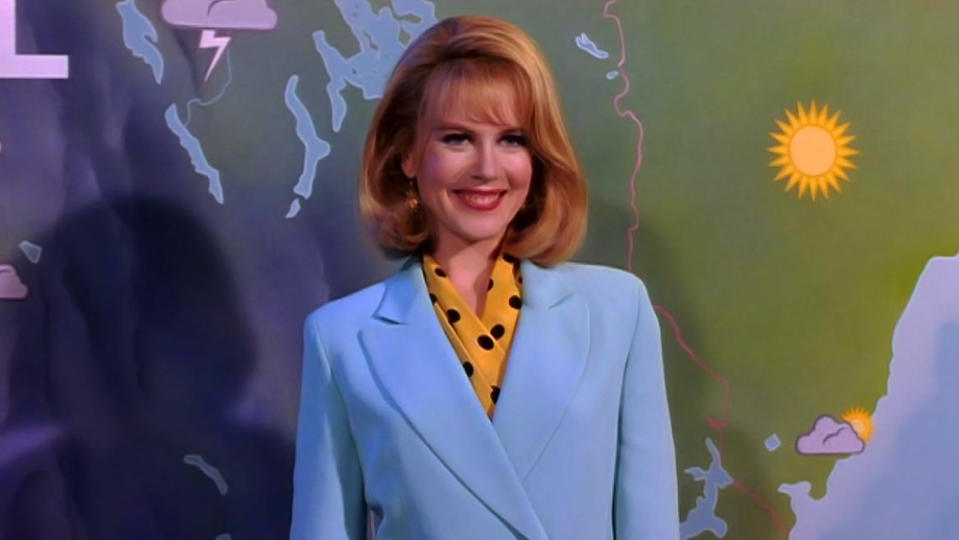Trying to be perfect was crushing me—here’s how I let go
Trying to be perfect was crushing me—here’s how I let go
Perfectionism, by general consensus, is not seen as a negative trait. Sure, if you read a self-help book, you’ll notice that perfectionism is supposedly one of the traits that’s holding you back on your way to inevitable success. Yet, there are often far worse obstacles to overcome. Not for me, though: It took me a while to see that perfectionism isn’t a stronghold for my own worthiness, but a revelation of the impending destruction inside myself.
Perfectionism was the fuel of my engine, the elixir that pushed me to continuously strive to develop the best version of myself — inside and out. A term coined by psychologists in the late ’70s, perfectionism describes striving for flawlessness, aiming for high performances, which is often accompanied by criticism and worries about other people’s opinion. For a long time, perfectionism felt like the added bonus I received upon my effervescent personality.
I used the trait to my advantage when I was a competitive swimmer. When you’re an athlete, you’re constantly competing against yourself; you’ll try to get the perfect form and become faster than the seven other swimmers, who are also fighting against the impetuosity of the chlorine water and the monster of fatigue.
Similarly, I used this trait to my advantage when it came to my career. Being a child of immigrants, my inheritance was education. As my uncle would say: “Your degree is your first husband; better make it a good one.” So I did.
Perfectionism nearly crushed me when it came to my physical appearance. The few who hit the genetic lottery are prone to scoffing and saying that beauty is not all there is in this life. I want to tell them how it is, feeling caught in the middle between failure and success for something as subjective as beauty. I’ve seen firsthand how people change their behavior when they’re confronted with beauty. The dividends are subtle: People add more value to your thoughts and opinions; you’ll receive numerous compliments from friend and even foe; research shows it can even lead to higher salaries. The beauty I yearned for can’t be achieved by virtuous willpower and hard work. Being seen as beautiful is not the litmus test to merely exist in this world. Yet, the feelings of inadequacy that are entangled to the concept of beauty are hard to shake off.
Three small words, “I am beautiful”: My impulse is to swallow the words and forget the sentiment ever crossed my mind. I get uncomfortable when people compliment me, and more often than not, the silence is thick and I drift away on the gulf of uneasiness. I’d let my awkwardness speak for itself and hoped people would forget their unreliable statement.
In a world where beauty is basically synonymous with success, it’s hard to undo the subliminal indoctrination of society. I wanted to reap the benefits of encompassing beauty. There were fleeting moments where I felt it; but just like external validation, it wears off quickly. My height and my weight worked in my advantage and I saw my body type positively reflected in the (white) media. It was the lack of symmetry in my facial features: The long philtrum, the small mouth with the plump lips, and the undefined face, that continuously made me subject myself to internal vitriol.
How can beauty be a measurement for a person’s worth and why did I want to attain it? It was only for the mere sake of pleasing others. The constant search for approval conjured a monster in me that rivaled narcissist Suzanne Stone in Gus van Sant’s To Die For. Suzanne’s mini-monologue reflects the allure and revolt of visibility: “You’re not anybody in America unless you’re on TV. On TV is where we learn about who we really are. Because what’s the point of doing anything worthwhile if nobody’s watching? And if people are watching, it makes you a better person.”
The validation of others when it came to my beauty was everything.
We all know that perfection isn’t real. Instead of accepting the genetic cards that I was dealt with, I fought a silent battle within myself. I struggled to reach the point of self-acceptance and to finally say and mean: I am enough. I tried to use my perfectionism as a motivational tool, but the heart-clenching trait brought me down, time and time again. My perseverance and stubbornness used to work in my favor when it came to other elements in my life; not for the illusion of beauty. I never was in the position to take a well-earned victory lap.
My beauty is no weapon nor a trophy. So I’m trying to acknowledge that it’s ok being me; I don’t have to be seen as beautiful. I’m not forcing myself to say “I am beautiful” in order to defeat the feelings of inadequacy. I just have to absorb my mustered confidence into my pores. That’s enough. My perfectionism still lies in the hidden depths of my being; but now, I’m letting it sleep
The post Trying to be perfect was crushing me—here’s how I let go appeared first on HelloGiggles.


